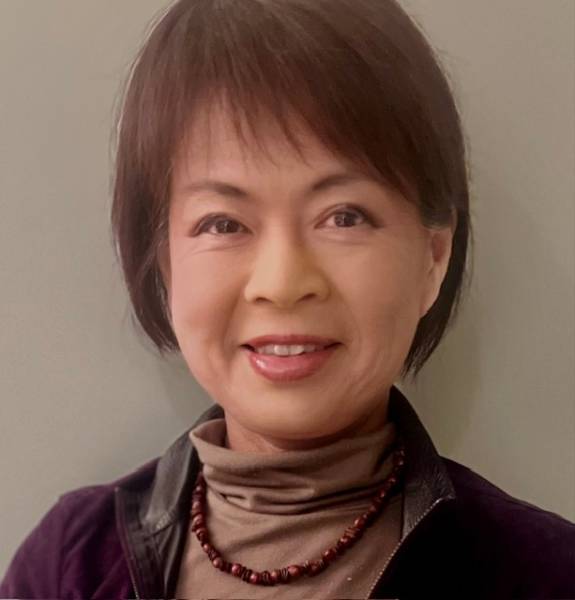Dr Kyoko Murakami


Kyoko Murakami is a lecturer in psychology at the Department of Psychology, the University of Westminster, London and an honorary research fellow at the University of Bath. UK. Previously, she held an associate professorship in psychology at the University of Copenhagen, Denmark. She received her PhD in psychology at Loughborough University in 2002.
Kyoko PhD thesis, titled Revisiting the past: Social organisation of remembering and reconciliation was funded by the Overseas Research Students Awards Scheme. Kyoko's PhD was supervisor by Dr David Middleton and examined by Prof Rom Harré and Prof Steve Brown. She was a member of Discourse and Rhetoric Group, also known as DARG based in Social Sciences, Loughborough University.
Kyoko's research topics include social remembering, reconciliation, learning in collaboration, dialogism and ageing. She is an executive committee member of the International Society for Theoretical Psychology and a member of the editorial board of Culture & Psychology. Her published books include Discursive Psychology of Remembering and Reconciliation (Nova, 2012) and Dialogic Pedagogy (Multilingual Matters, 2016) and Activity Theory: An Introduction (Ibidem, Columbia, 2024).
I am happy to supervise PhD research from cultural, social and discursive psychological perspectives including dialogism including Bakhtinian and Dialogical-Self Theory with qualitative methods. Please see the following link:
Applying for a PhD | University of Westminster, London
Currently, we have two PhD student schemes. Here are three suggested projects, which I am happy to supervise:
Suggested PhD research project 1:
Title: Loneliness among Young People in the UK: Sociocultural theory approach to exploring identities and inclusive space
Dr Kyoko Murakami (DoS), Dr Dan Greenwood, TBC
Theme: Identity, self and society
Loneliness among young people in the UK has increased as a critical public health issue, particularly since the COVID-19 pandemic. This research aims to explore young people’s experience of loneliness, focusing on the way they make sense of loneliness and how they express contributing issues, and mental health implications to the Equality, Diversity and Inclusion (EDI) agenda and economic and social policy. The research will draw on sociocultural theory, CHAT or/and discursive psychology and take a qualitative approach. The applicant is encouraged to propose creative, innovative methodology. Through community-led interventions, the research aims to address three SDG agenda--1) SDG 3: Good Health and Well-being (mental and physical health) of young people; 2) SDG 10: Reduced Inequalities, social inclusion and increased productivity by helping them to develop transformative agency and build a sense of belonging ; 3) SDG 11: Sustainable Cities and Communities, creating safe spaces.
Suggested PhD research project 2:
Title/themes: Ukrainian Refugees in the UK remembering homeland and identity construction
In the wake of Russian invasion of Ukraine in February 2022 and ongoing conflicts and displacement, maintaining cultural identity becomes central to refugees navigating in new environments. The applicant is invited to submit a research proposal that delves into the significance of materiality, the way in which memory objects can be used to understand their experience of Ukrainian refugees in London. The proposal uses a theoretical framework such as Sociocultural Theory or CHAT used in the work of social remembering. An innovative, sensitive and participatory methodology can be proposed to work with the Ukrainian refuges. As one of the essential requirements, the applicant is a native speaker of, or fluent in Ukrainian in working with Ukrainian research participants. The project aligns with SDG on peace and sustainability.
Suggested PhD research project 3:
Topic: Generative AI and counselling
Dr Kyoko Murakami (DoS), Dr Sanjay Joban (2nd supervisor), TBC
Theme: Health, Stress and Wellbeing
The adoption of generative AI in counselling practice represents a significant technological advancement with profound implications for mental health care practices. This research aims to explore the integration of generative AI in counselling through the perspective of Science and Technology Studies (STS) or/and CHAT (Cultural-Historical Activity Theory). The applicant is invited to submit a research proposal with an argument for the chosen theoretical perspective and aligned methodology. The proposal will consider wider societal and global implications of AI to counselling practice in line with the university’s EDI agenda and several Sustainable Development Goals.
Kyoko's Research Programme
I am interested in examining language use and social relations configured and reconfigured in social and cultural practices. As a member of research centres in Westminster--Westminster Centre for Psychological Sciences, HOMELandS, Research Centre on Peripheral Populations), I am involved in a few projects--in exploring COVID-19 related issues and the displacement experiences of diasporic populations (Indian Diaspora) and refugees.
As my theoretical and methodological orientations, I draw on a social constructionist paradigm including Discourse Analysis, Discursive Psychology and Cultural Psychology/Sociocultural Theory/Cultural-Historical Activity Theory (and open to other approaches such as ethnography and phenomenology). My current research ranges from examining remembering and reminiscence, peace and reconciliation practices, to exploring dialogic space in everyday settings.
As my long standing interest in social remembering and reconciliation, I am a member of War and Pilgrimage Network and Burma Campaign Society. Previously, I was part of the AHRC network of Silence, Memory and Empathy with cultural studies scholars and museum and heritage professionals.